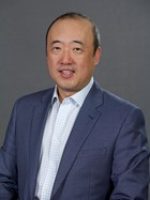
Chronic rhinosinusitis with nasal polyps (CRSwNP) is associated with significant morbidity and negatively impacts quality of life. The good news is that biologic therapies targeting type 2 inflammatory pathways provide additional treatment options for CRSwNP. However, clinicians not only need to accurately diagnose nasal polyps in patients but also recognize the role of the underlying pathology to incorporate biologic agents into treatment regimens when appropriate, as Dr. Joseph K. Han explains.
Upon completion of this activity, participants should be better able to:

Professor
Chief, Division of Rhinology and Endoscopic Sinus-Skull Base Surgery
Chief, Division of Allergy
Eastern Virginia Medical School
Norfolk, VA
Featured RMEI CE Activities – Earn CE Credit(s)
Stay up to date with the latest RMEI CE Activities and receive Exclusive Medical Education Resources